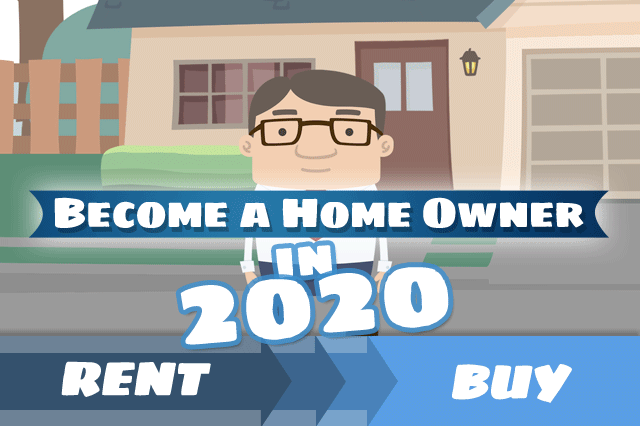Should You Own or Rent in 2020?

2020 is a very good year to consider buying a home with a low-down payment FHA mortgage, but what are the advantages of owning versus renting?
Purchasing a home, or building one from the ground up using a construction loan, is a serious commitment. You’ll need to review your credit rating and credit history, which is beneficial no matter what you decide about buying a home.
The borrower who gets approved for a mortgage loan and makes all payments on time establishes themselves as a good credit risk, but that’s only one advantage among many.
When you commit to buying the home, get to your closing date, and start living in the home as your main address, your monthly mortgage obligation includes paying principal and interest on the loan.
Borrowers who pay more than the minimum required every month pay down their principal balance faster, creating equity. If you can afford to pay more than the minimum each month, you get the benefit of paying off the home faster and saving money on interest payments over the duration of the mortgage.
Building Equity in Your Home: You Can’t do That as a Renter
According to Wikipedia, “Home equity is the market value of a homeowner's unencumbered interest in their real property—that is, the difference of the home's fair market value and the outstanding balance of all liens on the property.”
The property's equity goes up as the borrower pays down the principal balance. For some borrowers, the most desirable factor in this is the ability to borrow against that equity later in the form of home equity loans, reverse mortgages, cash-out refinance loans, etc.
Building up the equity in your property means establishing a financial advantage, especially for the borrower who is careful to avoid missed or late payments, etc. If you have equity you can tap into at a future date, you have borrowing power that can help with unexpected bills, the purchase of a bucket-list vacation, etc.
Owning a home can for some also include more income in the form of rent. The borrower who decides to rent out unused units in a multi-unit property is permitted to do so under FHA loan rules, but in most cases you will be expected to be an owner-occupier and not an absentee landlord who does not live on the property.
------------------------------
RELATED VIDEOS:
Let's Talk About Home Equity
Understanding Your Loan Term
Your Home Loan is Called a Mortgage

Do you know what's on your credit report?
Learn what your score means.







